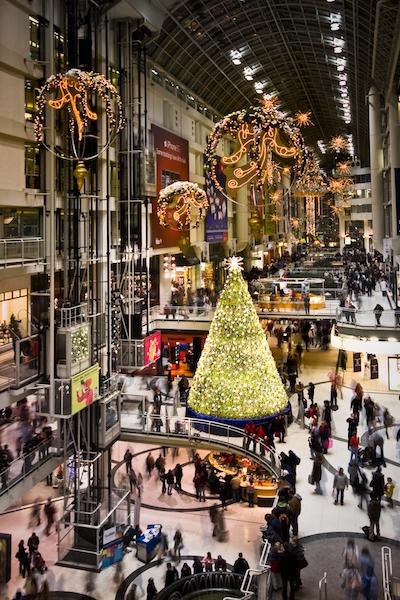‘It’s all about the commercial’

Christmas has turned into a commercial holiday according to CHS Students.
December 22, 2016
In “How the Grinch Stole Christmas,” Dr. Seuss tells the tale of the un-jolly Grinch that eventually learns that the holiday spirit prevails without gifts and feasts, illustrating that material things are not what the holidays are about.
Nineteen percent of CHS students are unhappy with the commercialization of the holidays, while 23 percent are happy with it, according to a survey of 248 students from Nov. 29 to Dec. 1. Fifty-eight percent of students are indifferent towards this commercialism.
Since the 1960s, the commercialization of the holidays has grown greatly, impacting the religious aspect of the season, gift-giving, the entertainment industries and even seasonal beverages. Sales and advertisements swell during the holidays.
Christmas truly became a holiday of gift-giving in the late 1800s, according to Bloomberg View. As the country industrialized and the economy grew, Christmas moved away from celebrating the birth of Jesus and towards the inundation of buying and selling.
Not only are ads very prevalent during Christmas, but they often start long before December. Many retailers begin holiday marketing as early as Nov. 6, according to Marketing Week.
Seventy-five percent of CHS students believe that holiday ads should not begin until after Thanksgiving, according to The Inkblot survey, while the rest think that ads should start before Thanksgiving. Zero percent think that they should commence before Halloween.
A shining example of this commercialization is the two biggest shopping days of the year: Black Friday and Cyber Monday. On these days, stores offer deals to attract as many customers as possible in a 24-hour timespan.
Stores opened on Thanksgiving as early as 4 p.m. to begin the Black Friday sales, according to DealNews. Approximately $5 billion was spent online this Thanksgiving weekend, as reported by CNBC.
Fifty-two percent of CHS students participated in these sales, according to the same Inkblot survey, joining the 154 million people that shopped on Thanksgiving weekend, according to CNBC.
Some students enjoy the shopping aspect of the holidays, such as sophomore Jules Anderson of Howell.
“I always enjoy it because it’s an experience you don’t get any other time of year. I can really get into the holiday spirit and enjoy the shopping and sales with my friends,” Anderson said.
Unlike Anderson, freshman Logan Peterson of Middletown believes money-making hinders the holiday spirit.
“Christmas is about spending time with family and friends,” Peterson said. ?The commercialization makes it all about money and ruins the experience.”
As consumers navigate the busy holiday season each December, people will continue to decipher the meaning of the holidays for themselves.
As the Grinch said, “Maybe Christmas doesn’t come from a store. Maybe Christmas, perhaps, means a little bit more.”



